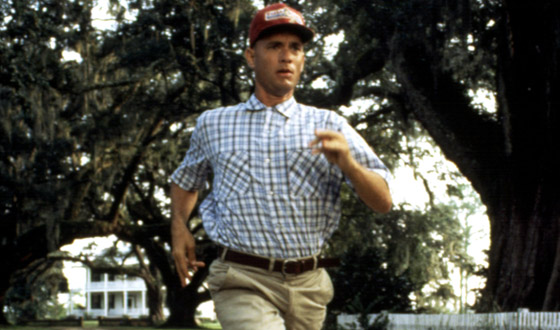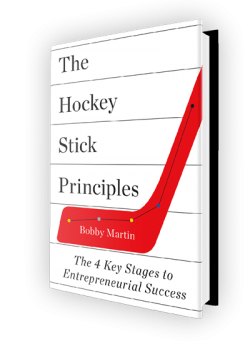 After a long, mind-boggling sales call, I am desperate to get home to Raleigh for an important event.
After a long, mind-boggling sales call, I am desperate to get home to Raleigh for an important event.
“When’s your flight, mister?” the taxi driver asks me in Manhattan at 5:10 p.m.
“5:40!”
“Sheesh, you’re screwed!”
Indeed I am. I jump in the backseat of the taxi, my head on the seatback, hoping for a miracle. My taxi arrives at LaGuardia at 5:30 – record time for late afternoon in New York. I run to the ticket counter and—more luck—there’s no line.
The US Airways rep looks saucer-eyed at me, “Are you crazy? You’ll never make this flight. It leaves in seven minutes!” I charm her with microwaved smiling and begging.
She makes a phone call. Then, “If you run, you might make it. Good luck, Robert Martin!”
I’m off to the races – desperate to make my flight.
I zip through security. More luck. Now it’s gate time! And then comes today’s biggest miracle – as I am running through the airport, I hear from the loud speaker, “Run, Robert Martin, run! Run, Robert Martin, run!” I’m dumb-founded. Is the gate agent who works in this grayed-down, drab, impersonal facility actually rooting for me over the loud speaker?
I’m hauling ass – faster and faster.
Sure enough, I see my gate up ahead and several people laughing and clapping for me. This is a miracle! The gate agent, laughing and smiling, takes my ticket, “Hustle on, Robert Martin!”
Once in my seat, I look at the time—5:39. I’m headed home!
I was very lucky that day. I was also very desperate – which brings me to my main point: Desperate situations inspire excellence. That day, I wasn’t only lucky – I was also at my best when sweet-talking the ticket agent and dashing through security.
Startup desperation works the same way. For many of the successful founders I interviewed or researched for The Hockey Stick Principles, desperation fueled their ultimate success.
Consider how Eric Ryan and Adam Lowry, both 24 at the time, started Method, the beloved environmentally-friendly hand soap firm. Early on, few national chains would carry Method because it lacked something compelling to draw consumers to it. Unless Eric and Adam came up with a good tweak ASAP, their money would soon run out. Now desperate, they hired the talented creative designer, Karim Rashid, to come up the “bowling pen-shaped” bottle that helped Method stand out. The unique bottle enabled them to land a contract with Target.
Here is another example: Brian Hamilton, who built financial software firm Sageworks, discovered his best market, accountants, when he was desperate. In 2000, the new company faced financial difficulties. It had spent about $300,000 but had minimal revenue, so it was running out of money. “You could see the end,” Brian said.
Now desperate, Brian got in his car and drove across the country making sales calls on anyone who’d visit with him: H&R Block, American Express, Fair Isaac, Intuit, several banks, and some smaller financial firms. While traveling across the country “looking for wins,” he felt a small glimmer of hope when he sold a $500 subscription to a small, regional CPA firm in Knoxville, Tennessee. This one, small, “desperate” sale turned out to identify the large market Sageworks needed to breakthrough. Soon, thousands of accountants signed up.
Desperate times do call for desperate measures. Sometimes, that’s just what your startup needs. So, next time you’re feeling desperate, turn it into a positive by doing something desperate!
Sign up to get more great insights directly to your inbox.
As a special bonus, you'll also immediately get access to my inside analysis of what made 172 diverse companies achieve take-off revenue growth.
